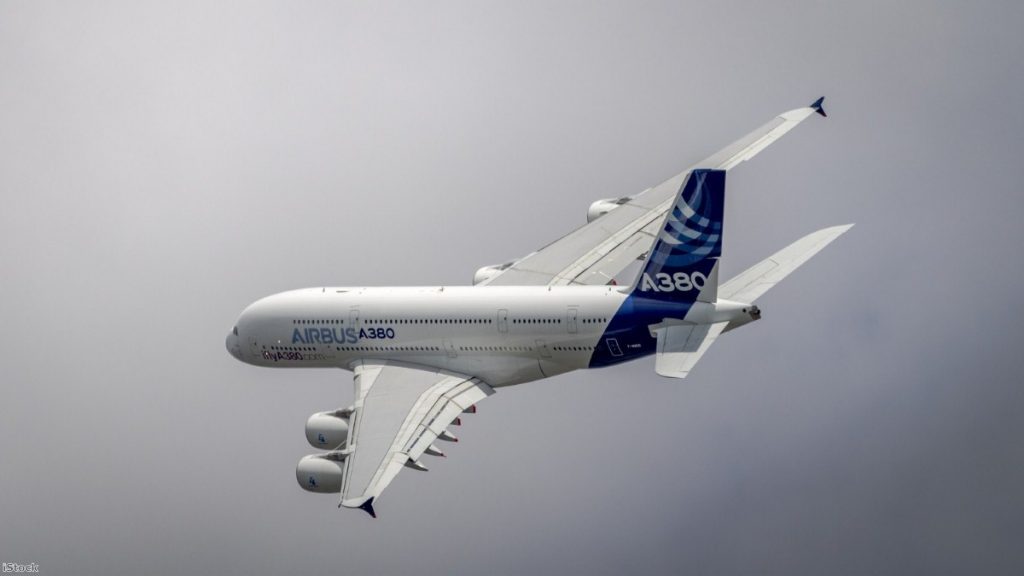Theresa May can't kick the no-deal habit. She threw everything she had at making sure it couldn't be stopped this week – her authority, her goodwill, her reputation. And in the end, she won. Tory rebels backed down and supported the government. Those left over, like minister Phillip Lee, who resigned on the issue, were left isolated. May got her way.
And then, on Friday, a quick reminder came about what a no-deal actually entailed. Airbus' Brexit risk assessment is a horror story in multiple parts, each worse than the next.
Just like in a horror story, the stakes are high. Airbus employs 14,000 people in the UK, across 25 sites, supplying up to 110,000 jobs – from the cafe owner making workers their sandwiches, to the transport connections and goods which service them.
They are deeply enmeshed in the EU. Their employees make 80,000 UK-EU business trips a year. They have an integrated just-in-time supply chain crossing the Channel multiple times. They need their work certified by the European Aviation Safety Agency (Easa) to satisfy regulatory standards, which means design, production, maintenance, repair and overhaul of every part, no matter how small, must get signed off to European requirements.


As the risk assessment points out, this doesn't just mean that Airbus needs to stay under Easa's jurisdiction – which yes, includes the European Court of Justice. It means that every UK supplier which it has a relationship with must do so too. "Should a single supplier not be certified," it warns, "its parts cannot be installed and consequently prevent the delivery of aircraft".
Customs borders – hello, old friend – are also a problem. Parts cross multiple borders multiple times in the creation of its product, making the aerospace industry particularly susceptible to bureaucracy. The dreaded rules-of-origin checks can slow everything down, over and over, making a smooth-running frictionless system break down.
The current UK plan is to stay in the customs union and single market until December 2020 and then set up some new kind of system, which does not yet exist in the world, in which it can have all the bits it wants from both with none of the responsibilities. Even if this was attainable, the schedule is not deliverable. The transition is simply not long enough. Everyone knows this – trade experts, politicians, business leaders – but no-one dares say it, in London or Brussels. It is the truth that dare not speaks its name.
No-deal, however, puts any other outcome in the shade. It is the apocalypse option. There'd be no transition at all, no warning, no preparation time. Airbus predicts severe disruption and possible "discontinued airworthiness", which, when you make airplanes, is about as bad as things can get.
"With no spare capacity left over years to come, every disruption to production would most likely turn into an unrecoverable delay," the risk assessment warns. "Every week of unrecoverable delay would entail material working capital impact, re-allocation cost, cost for inefficient work, penalty payments to customers and up to €1 billion weekly loss of turnover."
The company is as good as saying it would pull out the UK under no-deal. It's not a threat. It's not something any business wants to do – not because they're lovely British patriots, but because it is deeply inconvenient, expensive and self-harming for everyone involved. "This extremely negative outcome for Airbus would be catastrophic," it says. "It would impair our ability to benefit from highly qualified British resources, it would also severely undermine UK efforts to keep a competitive and innovative aerospace industry."
You get the sense the company has finally given up on the British government. "We have sought to highlight our concerns over the past 12 months, without success," chief operating officer Tom Williams said this morning. "Far from Project Fear, this is a dawning reality."
But regardless of how efficiently he tries to head off the charge, he will indeed be accused of being a part of Project Fear, or of being in the pay of Brussels. It is absurd. No business sticks its neck out like this politically unless it really needs to. There is a simpler explanation for what we are seeing here: this is really happening. This is true.
If there is a conspiracy it is, by objective reality, to puncture a project built on lies and half-conceived nationalist dreams.
May's no-deal option would be a disaster of historic proportions for this country. MPs should have built a rear-guard defence against it this week, but they bottled it. Airbus' warning provides a reminder of how significant their failure to do so could be.
Ian Dunt is editor of Politics.co.uk and the author of Brexit: What The Hell Happens Now?
The opinions in politics.co.uk's Comment and Analysis section are those of the author and are no reflection of the views of the website or its owners.













